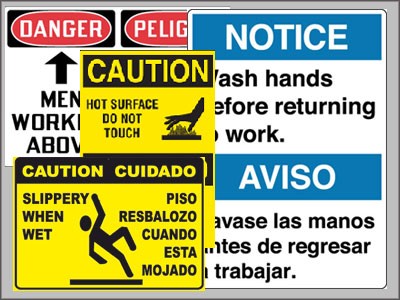“Si yo puedo hacer lo, usted puede hacerlo. “
That’s the tagline (“If I can do it, you can do it,”) of a language-instruction radio advertisment that’s burned itself into my memory banks. And aside from making me wish I’d kept up with my high-school and college Spanish proficiency, it got me to wondering about foreign languages and the U.S. jobs market. I think most of us who have traveled have also marveled at how citizens of other countries tend to speak multiple languages as a matter of course, compared to U.S. citizens (or at least, those who didn’t grow up in bilingual homes.)
With increasing globalization and a growing Spanish-language (and other language) population domestically, bilingual workers appear to be in demand. I think a report on which jobs and employers in your market request or require foreign-language proficiency could be very enlightening and helpful to audiences. You could focus in on sectors, such as retail or IT. A quick search on various job sites, including those of temporary staffing agency, turns up an array of jobs seeking bilingual candidates, from cashier to teacher to bill collector. Why not search out employers in your area who are increasingly expecting candidates to speak more than one language, and use that requirement to flesh out a story about changing dynamics in those industries, and the ramifications for the jobs market?
Here’s a 2012 report from the jobs market research firm Wanted Analytics about the most-common jobs to require Spanish-speaking candidates, for example.
According to recent figures from the U.S. Census Bureau, 37 million U.S. residents over age 5 speak Spanish at home, with millions more using languages from Chinese to Urdu to Russian at home and many reporting that they speak English “less than very well.” So the market for translating jobs is another angle you could pursue; here’s a recent USA Today story about health care systems employing bilingual customer service representatives in order to serve immigrant populations. Are college grads or second-career Baby Boomers with language skills finding they have an edge in any industry? Here’s a recent Automotive News piece about bilingual car sales people, for example, and a posting from the Phoenix area that insurer AFLAC is hiring bilingual sales reps in that region.
The Globalization and Localization Association bills itself as the professional organization for the language industry (who knew?) and its website has quite a few resources for reporters; I note in a recent press release it’s formed a program with staffing agency Manpower to emphasize foreign language proficiency.
You could also look at how this trend in the jobs market may be driving sales of language software, or lessons (at the adult and child level) at local language schools, and from tutors and translators. Here’s a link to an IBISWorld press release about factors affecting the language instruction industry. And here’s an Inc. article from 2011 that cites language instruction as a hot industry for start-up businesses.











